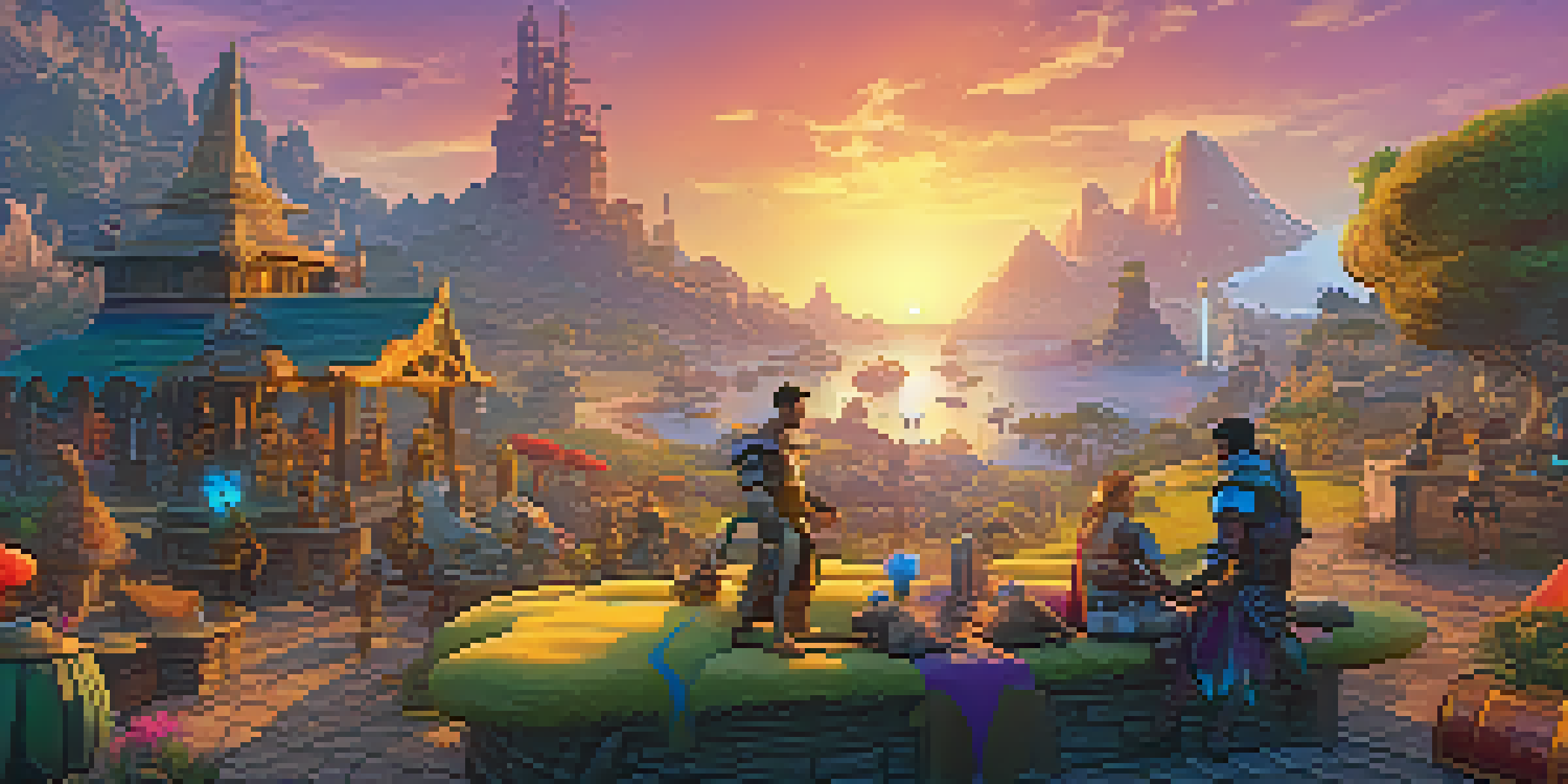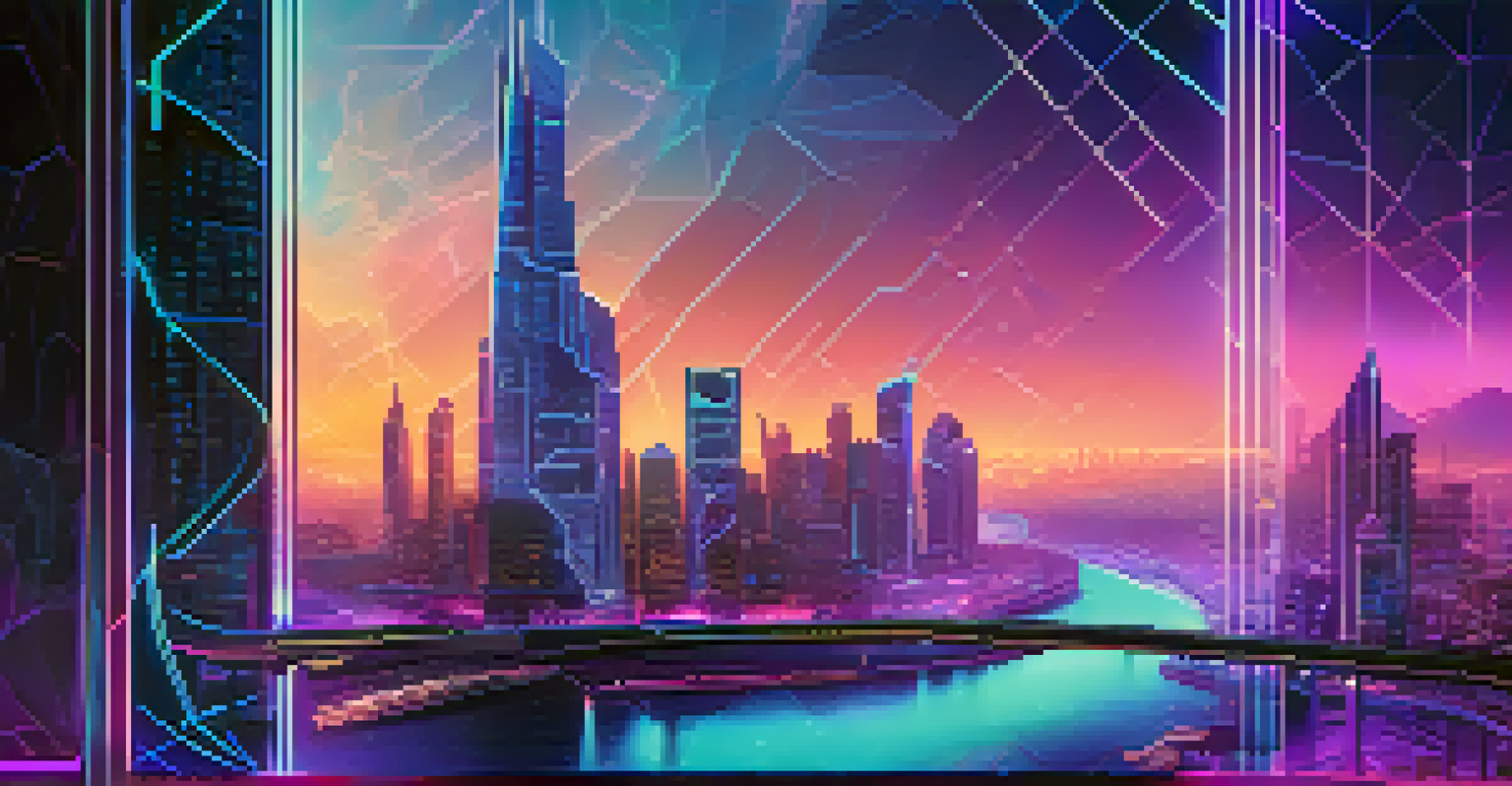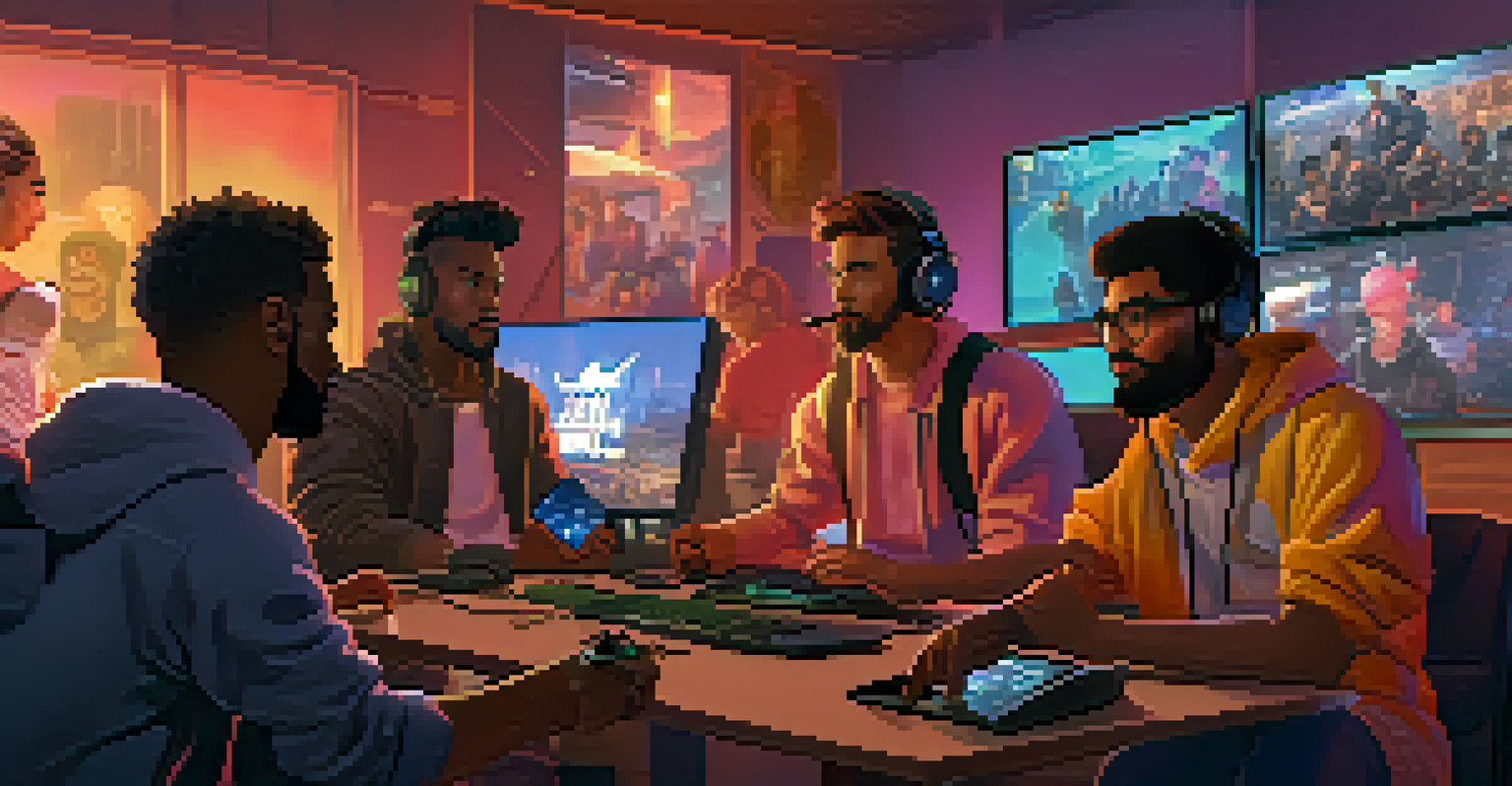Digital Rights in Gaming: NFTs as Ownership Solutions

Understanding Digital Rights in the Gaming Landscape
Digital rights refer to the legal permissions surrounding the use of digital content, and in gaming, this concept is crucial. Gamers often invest time and money into virtual assets, yet traditional ownership models can leave them feeling like mere renters of their digital worlds. This is where the need for clearer digital rights becomes evident, as players seek more control over their gaming experiences.
The rise of blockchain technology has the potential to redefine ownership in the gaming landscape.
As gaming continues to evolve, the conversation about ownership rights is becoming increasingly relevant. Players want to ensure that the assets they acquire—be it skins, characters, or in-game currency—are genuinely theirs to keep, trade, or sell. Without a proper framework, players can feel vulnerable, facing potential loss of access to their investments due to platform changes or company policies.
The rise of blockchain technology has introduced new possibilities for establishing clear digital rights. With the advent of Non-Fungible Tokens (NFTs), a new paradigm is emerging that allows players to own their digital assets in a way that is secure, verifiable, and truly theirs. This shift is not just a trend; it's a necessary evolution in how we think about ownership in the gaming realm.
What Are NFTs and How Do They Work?
NFTs, or Non-Fungible Tokens, are unique digital assets verified using blockchain technology. Unlike cryptocurrencies such as Bitcoin, which are interchangeable, NFTs represent ownership of a specific item, making them perfect for digital art, collectibles, and in-game items. Each NFT is stored on a blockchain, ensuring that ownership is transparent and secure, which is vital in the gaming industry.

For gamers, this means that when they purchase an NFT, they own a verifiable piece of digital property. This ownership is recorded on the blockchain, making it difficult for anyone to dispute or forge. Imagine owning a rare skin in a game that not only looks unique but is also yours to keep or trade without fear of losing it due to a platform's policy change.
Digital Rights Empower Gamers
Clear digital rights allow players to truly own and control their in-game assets, reducing vulnerability to platform changes.
Moreover, NFTs can also embed smart contracts, which are self-executing contracts with the terms of the agreement directly written into code. This allows game developers to set royalties on future sales, ensuring that they continue to benefit from their creations. It’s an exciting way to think about ownership that benefits both players and creators.
The Benefits of NFTs for Gamers
NFTs bring a host of benefits to players, starting with true ownership of in-game assets. No longer do players have to worry about losing their valuable items if a game shuts down or if they switch platforms. With NFTs, assets can be transferred across various games and marketplaces, giving players unprecedented control over their digital collections.
True ownership of digital assets empowers players and creates a new economy within the gaming world.
Additionally, NFTs can foster a sense of community and engagement among players. Imagine being able to showcase your unique assets in social spaces or even in-game exhibitions. This capability enhances the gaming experience by allowing players to express themselves through their collections, creating a more immersive and personal connection to the games they love.
Furthermore, the potential for monetization is another significant advantage. Players can sell or trade their NFTs, turning their passion into profit. This not only empowers gamers but also fosters a new economy within the gaming world, where players can earn real money from their digital endeavors.
Challenges and Concerns Surrounding NFTs
Despite their potential, NFTs in gaming are not without challenges. One major concern is the environmental impact of blockchain technology, particularly those that rely on energy-intensive processes. As gamers become more conscious of their ecological footprint, it's essential for developers to consider sustainable practices in NFT creation and management.
Another issue is the complexity surrounding NFTs. Many gamers are still unfamiliar with how blockchain works, leading to confusion and skepticism. For NFTs to truly thrive in gaming, education and awareness are crucial. Developers must find ways to demystify this technology and make it accessible for all players, regardless of their tech-savviness.
NFTs Transform Ownership Models
Non-Fungible Tokens (NFTs) provide gamers with secure, verifiable ownership of unique digital assets, revolutionizing how players engage with their collections.
Lastly, the question of regulation looms large. As the NFT market grows, so do concerns about fraud, security, and ownership rights. Ensuring that players are protected in this new landscape is vital, and it will require collaboration between developers, regulators, and the gaming community to establish a fair and safe environment.
The Role of Developers in Shaping NFT Ownership
Game developers play a pivotal role in how NFTs are integrated into gaming ecosystems. By creating clear guidelines and systems for NFT ownership, they can help players understand their rights and the value of their digital assets. Developers need to be transparent about how NFTs work within their games, ensuring players are fully informed before making purchases.
Moreover, developers have the opportunity to innovate with NFTs beyond mere collectibles. They can create unique experiences tied to ownership, such as exclusive in-game events or rewards for NFT holders. This approach not only enhances the player's journey but also fosters loyalty and community engagement.
In essence, the responsibility lies with developers to create a balanced ecosystem that prioritizes player rights while also considering the economic implications of NFTs. By doing so, they can set a standard for the industry, paving the way for a future where digital ownership is respected and valued.
Case Studies: Successful NFT Implementations in Gaming
Several games have successfully integrated NFTs, showcasing their potential in the industry. One notable example is 'Axie Infinity,' a game where players can breed, raise, and battle creatures called Axies, which are represented as NFTs. Players can buy, sell, and trade their Axies, creating a vibrant marketplace that enhances the gaming experience while offering real-world value.
Another example is 'Decentraland,' a virtual world where users can buy and develop parcels of land as NFTs. This platform allows players to create unique experiences, host events, and monetize their creations. By giving players true ownership of virtual real estate, Decentraland has redefined what it means to own a piece of the digital world.
Developer Role in NFT Ecosystem
Game developers must create transparent systems for NFT ownership to enhance player rights and foster community engagement.
These case studies highlight the potential for NFTs to revolutionize the gaming industry. As more developers explore these avenues, we can expect to see innovative applications that further enhance player ownership and engagement.
The Future of NFTs in Gaming and Player Ownership
Looking ahead, the future of NFTs in gaming is promising yet uncertain. As technology evolves, we can expect to see more seamless integrations that enhance player experiences while preserving ownership rights. Developers will likely explore ways to make NFTs more accessible and user-friendly, allowing a broader audience to engage with this new concept.
Furthermore, as players become more vocal about their rights and desires, the industry may shift towards more player-centric models. This could lead to the development of games that prioritize player ownership and foster genuine community involvement, creating a more sustainable ecosystem for all.

Ultimately, the conversation around digital rights in gaming will continue to grow, shaping how we think about ownership in the digital age. As players, developers, and regulators collaborate, the landscape will evolve, leading to a future where digital ownership is respected and valued in the gaming world.